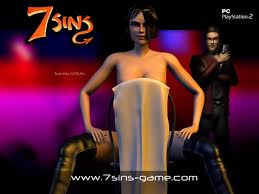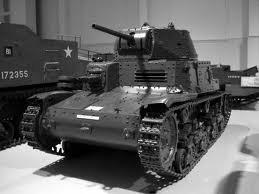"...and then Hitler decided it would be a good idea to attack Russia, lol."
124 posts
• Page 5 of 5 • 1, 2, 3, 4, 5
LOL is now an English word
I can't see how you could use the acronym "lol" in an essay. I mean, in what context would it be applicable? Certainly not the essays I write. My lecturers would probably just fail you if you wrote down "lol".
"...and then Hitler decided it would be a good idea to attack Russia, lol."
-

Amber Hubbard - Posts: 3537
- Joined: Tue Dec 05, 2006 6:59 pm
Newsflash: language changes over time.
Pretty much anyone who says that people are somehow ruining the English language through the introduction of new words should go back 100, 200, 300 years, and see if they could actually hold a conversation with someone who spoke English.
Pretty much anyone who says that people are somehow ruining the English language through the introduction of new words should go back 100, 200, 300 years, and see if they could actually hold a conversation with someone who spoke English.
This.
-

Far'ed K.G.h.m - Posts: 3464
- Joined: Sat Jul 14, 2007 11:03 pm
I don't think there has ever been as many acronyms used in casual conversation as there is being used now.
-

mike - Posts: 3432
- Joined: Fri Jul 27, 2007 6:51 pm
I don't think that the argument with words like "radar" and "sonar" are plausible. Those stand for realistic things (E.G. light amplification by stimulated emitted radiation), but think about what "lol" stands for. It means "laughing out loud". In any real conversation, that would be totally inane. It is saying that you are laughing out loud, but if so, than you have no need to say it. Across the internet, you can just say "that made me laugh" or "haha", considering now it is so banol that most of the time it is not said when you are actually laughing.
-

scorpion972 - Posts: 3515
- Joined: Fri Mar 16, 2007 11:20 am
No... But you can read an hundred and thirty year old news paper.
Well, you can with a dictionary, at least. I'm sure there are more than a few words in there that have been deprecated over time, and outside some timeless aphorisms that have remained with us they would probably be as indecipherable to us as "lol" would be for them. That's actually the point here: the OED now recognises "lol" as having significant enough use to warrant a definition, but that doesn't neccesarily make it a word in proper English usage - dictionaries merely record the changes in a language; they don't actually ratify them.
In any case, if someone were to write, "The man, clearly amused, gave out a mighty lol that shook the rafters," it should be possible to figure out the context regardless of the reader's epoch.
"...and then Hitler decided it would be a good idea to attack Russia, lol."
"And when Stalin saw the German army trapped at Stalingrad, he was all like 'lol, T34 ftw', and Field Marshal Paulus was all like 'wtf, T34 imba, qq...'"
-

Campbell - Posts: 3262
- Joined: Tue Jun 05, 2007 8:54 am
Newsflash: language changes over time.
Pretty much anyone who says that people are somehow ruining the English language through the introduction of new words should go back 100, 200, 300 years, and see if they could actually hold a conversation with someone who spoke English.
Pretty much anyone who says that people are somehow ruining the English language through the introduction of new words should go back 100, 200, 300 years, and see if they could actually hold a conversation with someone who spoke English.
Okay, first of all LOL is an acronym not a word, why can't we actually laugh out loud instead of laughing. I don't care if language is "changing", Tell me which statement sounds better
"Oh, that is hilarious *laughs*"
"Oh, LOL"
And this isn't texting, this is having a real conversation.
And I probably could have a conversation with someone from way back when
-

Lucy - Posts: 3362
- Joined: Sun Sep 10, 2006 4:55 am
Wow that's horrible, I still don't count it as a proper word or proper English.
-

Matt Fletcher - Posts: 3355
- Joined: Mon Sep 24, 2007 3:48 am
Oxford is kinda late on that.... but I guess its betterer laterer than neverer.
Most of the time I would consider that a true statement.
[] also, :stare:
-

Victoria Bartel - Posts: 3325
- Joined: Tue Apr 10, 2007 10:20 am
Yup. I'm glad I'm not talking allowed.
Your knot?
-

[ becca ] - Posts: 3514
- Joined: Wed Jun 21, 2006 12:59 pm
Okay, first of all LOL is an acronym not a word, why can't we actually laugh out loud instead of laughing. I don't care if language is "changing", Tell me which statement sounds better
"Oh, that is hilarious *laughs*"
"Oh, LOL"
And this isn't texting, this is having a real conversation.
And I probably could have a conversation with someone from way back when
"Oh, that is hilarious *laughs*"
"Oh, LOL"
And this isn't texting, this is having a real conversation.
And I probably could have a conversation with someone from way back when
What does "sounds better" mean?
And you completely missed the mark on the second statement, I don't care if you can have a conversation, the point is that you'd notice significant differences in the usage of words and phrases.
-

Naughty not Nice - Posts: 3527
- Joined: Sat Nov 04, 2006 6:14 am
Is that some kind of computer memory that works better when it catches on fire?
Hahahah acronym errors. Now that's one hypothetical nightmare. If everyone is using tons of acronyms you might make a mistake and have a completely different acronym there.
-

Agnieszka Bak - Posts: 3540
- Joined: Fri Jun 16, 2006 4:15 pm
In any case, if someone were to write, "The man, clearly amused, gave out a mighty lol that shook the rafters," it should be possible to figure out the context regardless of the reader's epoch.
That's a very scary image of the future you've shown. :shocking:
I found these, and they seem pretty plain and easily understood.
http://www.jeanhounshellpeppers.com/Three_Hatfield_Gang_Killed.htm
http://jeanhounshellpeppers.com/Men_Athirst_For_Blood.htm
http://jeanhounshellpeppers.com/Assassination_of_Judge_John_Elliott.htm
-

Alyna - Posts: 3412
- Joined: Wed Aug 30, 2006 4:54 am
That's a very scary image of the future you've shown. :shocking:
I found these, and they seem pretty plain and easily understood.
http://www.jeanhounshellpeppers.com/Three_Hatfield_Gang_Killed.htm
http://jeanhounshellpeppers.com/Men_Athirst_For_Blood.htm
http://jeanhounshellpeppers.com/Assassination_of_Judge_John_Elliott.htm
I found these, and they seem pretty plain and easily understood.
http://www.jeanhounshellpeppers.com/Three_Hatfield_Gang_Killed.htm
http://jeanhounshellpeppers.com/Men_Athirst_For_Blood.htm
http://jeanhounshellpeppers.com/Assassination_of_Judge_John_Elliott.htm
Newspaper articles are hardly known for their use of creative vernacular.
I draw your attention instead to Shakespeare as an example:
"Other words, like "pelican" and "willow" have lost the strong symbolic meaning that they had in Shakespeare's vocabulary. Most modern readers (myself included) would need a dictionary of mythology to understand that "pelicans" allegedly pecked open their mothers' briasts to feed. One doesn't need a translator to read Shakespeare, but some guidance in his word meanings might be useful."
http://www.acepilots.com/bard/ws_word.html
Need I also point out that he created http://www.nosweatshakespeare.com/resources/shakespeare-words.htm that we still use today? For no other purpose than to express something that before was inexpressable, or in reference to some common or popular notion. (Not that I'm saying the internet is anything like Shakespeare's wit...) :laugh:
Sadly know.
Stop it, your both driving me nuts!
-

Nicole M - Posts: 3501
- Joined: Thu Jun 15, 2006 6:31 am
I thought it was hilarious when forums member Tyana Rie took the texture from the Vault 101 jumpsuit from Fallout 3 and turned it up side down and reapplied it....
It read "LOL".
lol.
It read "LOL".
lol.
-

victoria johnstone - Posts: 3424
- Joined: Sat Oct 14, 2006 9:56 am
I've seen the acronym FTW on these forums a lot. I had to look it up, and apparently it means "For the win".
I always thought it meant "Forever Two Wheels" or "[Expletive] The World", and I knew that it couldn't mean that in the context that I was seeing it here.
"For the win" is a new one on me, as I only learned it within the last month or so. LOL ! FTW !
Meanwhile, we add new words to the dictionary and other ones become archaic; and a lot of people on forums have all but forgotten the correct usage of the semi-colon.
I'm wondering if the use of the semi-colon will become archaic? I do it myself.....instead of a semi-colon....I use dot dot dot dot dot.......
I'm beginning to ramble, but I actually used a semi-colon in this post. However, it seems that on forums, dot dot dot dot better expresses a pause in conversation better than a semi-colon, but please do not forget how to correctly use one in other written matter.....like literature.
I always thought it meant "Forever Two Wheels" or "[Expletive] The World", and I knew that it couldn't mean that in the context that I was seeing it here.
"For the win" is a new one on me, as I only learned it within the last month or so. LOL ! FTW !
Meanwhile, we add new words to the dictionary and other ones become archaic; and a lot of people on forums have all but forgotten the correct usage of the semi-colon.
I'm wondering if the use of the semi-colon will become archaic? I do it myself.....instead of a semi-colon....I use dot dot dot dot dot.......
I'm beginning to ramble, but I actually used a semi-colon in this post. However, it seems that on forums, dot dot dot dot better expresses a pause in conversation better than a semi-colon, but please do not forget how to correctly use one in other written matter.....like literature.
-

Batricia Alele - Posts: 3360
- Joined: Mon Jan 22, 2007 8:12 am
Considering the English language has declined and melted more into other languages and slang, this doesn't surprise me in the least.
Give it fifty years, the "proper" English speakers will sound like the guy from Joe Dirt, whom liked to see homos naked.
Give it fifty years, the "proper" English speakers will sound like the guy from Joe Dirt, whom liked to see homos naked.
-

Maria Garcia - Posts: 3358
- Joined: Sat Jul 01, 2006 6:59 am
Considering the English language has declined and melted more into other languages and slang, this doesn't surprise me in the least.
Give it fifty years, the "proper" English speakers will sound like the guy from Joe Dirt, whom liked to see homos naked.
Give it fifty years, the "proper" English speakers will sound like the guy from Joe Dirt, whom liked to see homos naked.
"Declined" "proper english"
These are subjective terms, and they aren't even new arguments, people have been saying the same things for quite literally centuries.
And "the guy from Joe Dirt, whom liked to see homos naked", uhhhh, what?
-

Jessie - Posts: 3343
- Joined: Sat Oct 14, 2006 2:54 am
Anyway, in all seriousness, I don't really have a problem with it becoming a "word". I don't have to use it. Although I would prefer that nobody use it. I've always considered people who do use LOL to be idiots. Not sure why. I just do. Same with npeople who don't capitalize or punctuate.
ditto
It's just some subconcious response, for me. I have no (concrete) clue why. :shrug:
-

^_^ - Posts: 3394
- Joined: Thu May 31, 2007 12:01 am
Okay, first of all LOL is an acronym not a word...
http://en.wikipedia.org/wiki/Acronym#Comparing_a_few_examples_of_each_type
Meanwhile, we add new words to the dictionary and other ones become archaic; and a lot of people on forums have all but forgotten the correct usage of the semi-colon.
I'm wondering if the use of the semi-colon will become archaic? I do it myself.....instead of a semi-colon....I use dot dot dot dot dot.......
I'm beginning to ramble, but I actually used a semi-colon in this post. However, it seems that on forums, dot dot dot dot better expresses a pause in conversation better than a semi-colon, but please do not forget how to correctly use one in other written matter.....like literature.
I'm wondering if the use of the semi-colon will become archaic? I do it myself.....instead of a semi-colon....I use dot dot dot dot dot.......
I'm beginning to ramble, but I actually used a semi-colon in this post. However, it seems that on forums, dot dot dot dot better expresses a pause in conversation better than a semi-colon, but please do not forget how to correctly use one in other written matter.....like literature.
You seem to use series of dots instead of commas in certain places as well.
Give it fifty years, the "proper" English speakers will sound like the guy from Joe Dirt, whom liked to see homos naked.
"...who liked to see homos naked."
-

Talitha Kukk - Posts: 3477
- Joined: Sun Oct 08, 2006 1:14 am
dots are pauses, pauses are not grammatical breaks
-

Kieren Thomson - Posts: 3454
- Joined: Sat Jul 21, 2007 3:28 am
You seem to use series of dots instead of commas in certain places as well.
I did it on purpose, and even exaggerated. Typically, it's usually only dot dot dot...and it seems acceptable on forums. I think you get the point.
-

Lauren Graves - Posts: 3343
- Joined: Fri Aug 04, 2006 6:03 pm
I did it on purpose, and even exaggerated. Typically, it's usually only dot dot dot...and it seems acceptable on forums. I think you get the point.
You wouldn't need dot dot dot there instead of anything because "and" is following.
-

Sabrina Schwarz - Posts: 3538
- Joined: Fri Jul 14, 2006 10:02 am
I am much more particular when I set a form of antique hand set metal type in the use of letterpress printing, I assure you.
Forums are much more casual.
Forums are much more casual.
-

james tait - Posts: 3385
- Joined: Fri Jun 22, 2007 6:26 pm
124 posts
• Page 5 of 5 • 1, 2, 3, 4, 5
